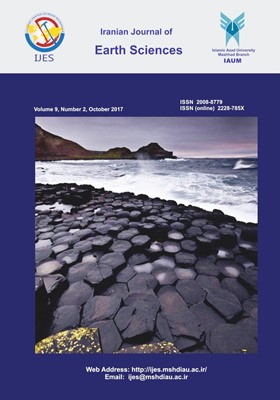Biostratigraphic study on calcareous nannofossils in South Gorgan, North of Iran
محورهای موضوعی : MineralogyMorteza Taherpour Khalil Abad 1 , Elham Mojtahedin 2
1 - Young Researchers and Elite Club, Mashhad Branch, Islamic Azad University, Mashhad, Iran
2 - Department of Geology, Faculty of Sciences, Ferdowsi University of Mashhad, Mashhad, Iran
کلید واژه: nannofossils, Biostratigraphy, Maastrichtian, Campanian, biozonation, South Gorgan,
چکیده مقاله :
A calcareous nannofossils biostratigraphic study has been carried out on the chalky limestones located in South Gorgan, north of Iran. The study is aimed at determining the age and nannofossil biozonations of the well. The samples were prepared using smear slide technique. Thirty seven calcareous nannofossils species were identified and used to make biostratigraphic zonations and dating of the strata. The distribution of the calcareous nannofossils enabled the establishment of five zones: Quadrum trifidum (CC22),Tranolithus phacelosus (CC23), Reinhardtites levis (CC24), Arkhangelskiella cymbiformis (CC25) and Nephrolithus frequens (CC26) belonging to late Late Campanian – late Late Maastrichtian following standard zonation schemes of previous workers. The zones were based on the first and last occurrences of marker species.
A calcareous nannofossils biostratigraphic study has been carried out on the chalky limestones located in South Gorgan, north of Iran. The study is aimed at determining the age and nannofossil biozonations of the well. The samples were prepared using smear slide technique. Thirty seven calcareous nannofossils species were identified and used to make biostratigraphic zonations and dating of the strata. The distribution of the calcareous nannofossils enabled the establishment of five zones: Quadrum trifidum (CC22),Tranolithus phacelosus (CC23), Reinhardtites levis (CC24), Arkhangelskiella cymbiformis (CC25) and Nephrolithus frequens (CC26) belonging to late Late Campanian – late Late Maastrichtian following standard zonation schemes of previous workers. The zones were based on the first and last occurrences of marker species.


